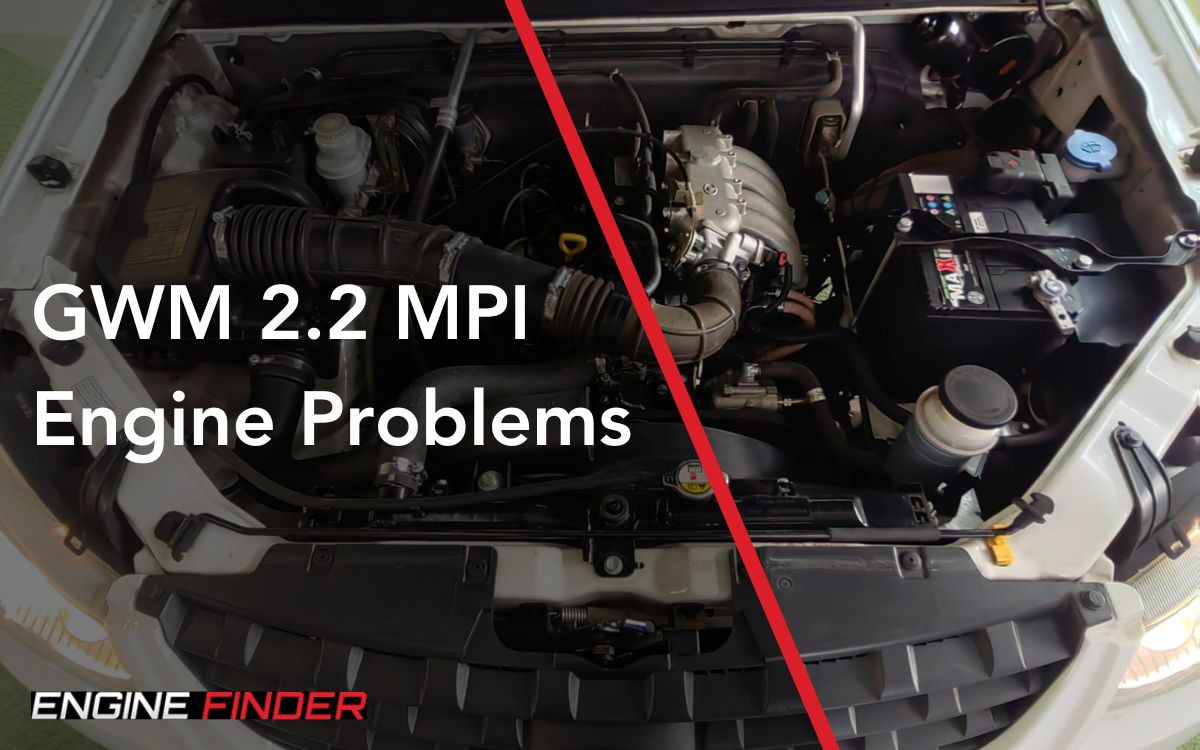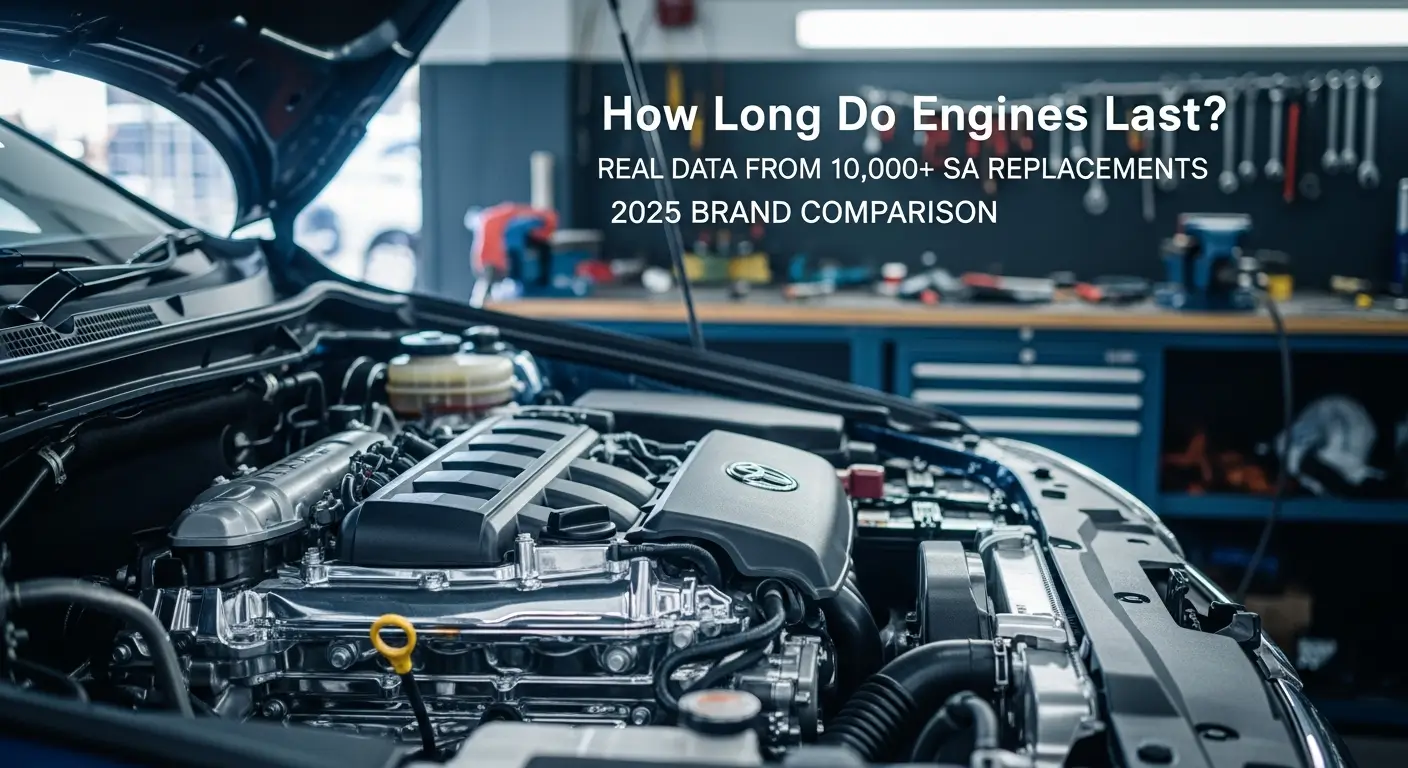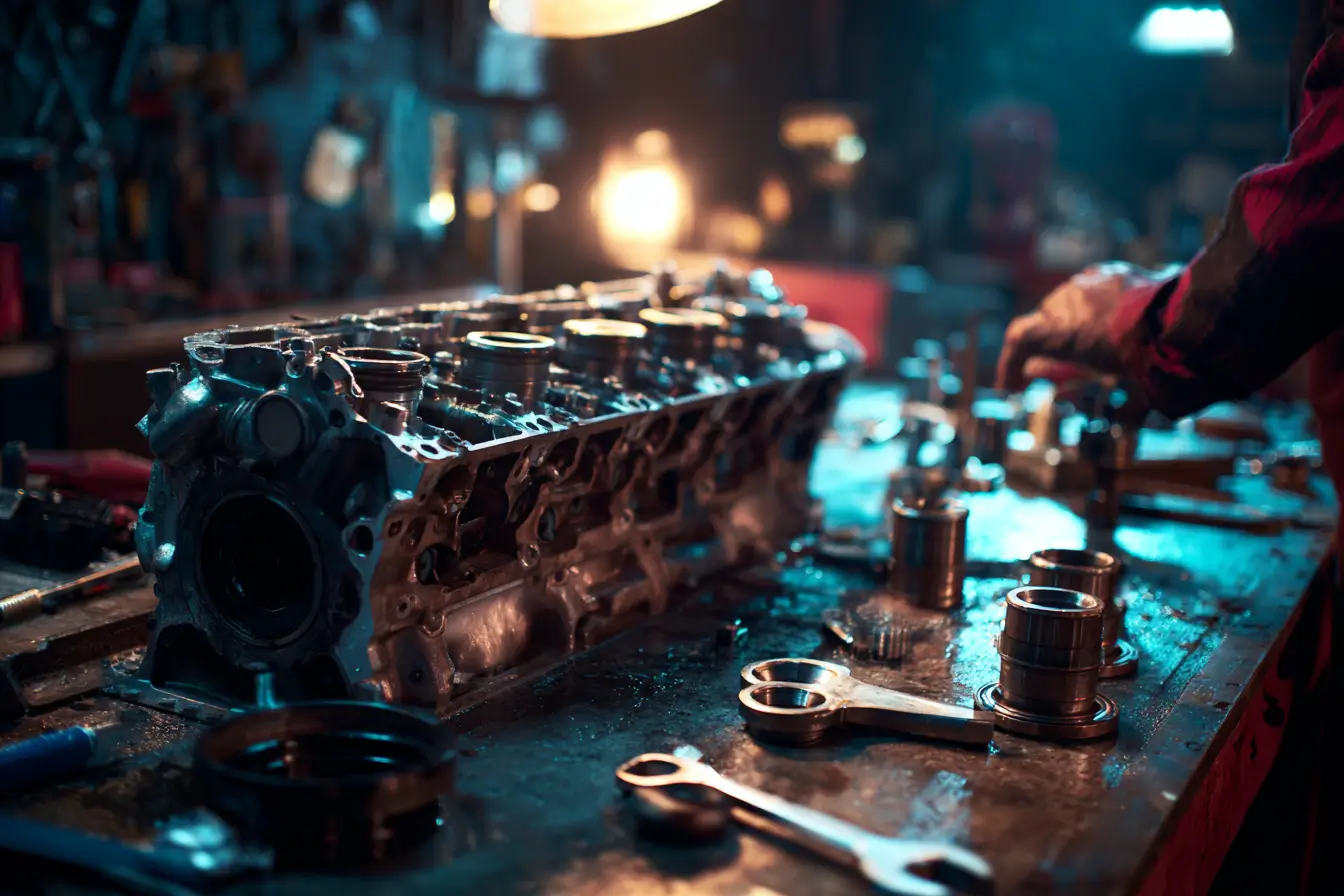
GWM 2.2 MPI Engine Problems: Complete Steed 5 Troubleshooting Guide
Key Takeaways
| Problem | Main Symptoms | Possible Causes |
|---|---|---|
| Engine Overheating | High temperature gauge, steam | Coolant leaks, faulty thermostat |
| Oil Leaks | Oil puddles, burning smell | Worn seals, dipstick tube leaks |
| Fuel System Issues | Poor performance, rough idle | Clogged injectors, fuel pump failure |
| Electrical Problems | Warning lights, sensor errors | Faulty wiring, ECU malfunctions |
| Cooling System Failures | Temperature fluctuations, leaks | Radiator problems, water pump issues |
The GWM (Great Wall Motor) 2.2 MPI (Multi-Point Injection) petrol engine has been the workhorse of the Steed 5 bakkie range in South Africa. This naturally aspirated four-cylinder engine provides reasonable performance for light commercial applications, but like many budget-oriented powerplants, it has developed a reputation for specific recurring problems. Understanding these issues is crucial for South African owners who rely on their GWM vehicles for daily transport and business operations.
GWM 2.2 MPI Engine Specifications
| Specification | Details |
|---|---|
| Engine Code | 4G22M4T |
| Displacement | 2.2L (2,237cc) |
| Configuration | Inline-4, SOHC, Naturally Aspirated |
| Fuel System | Multi-Point Injection (MPI) |
| Power Output | 73 kW (98 HP) @ 5,250 rpm |
| Torque Output | 180 Nm @ 2,500-3,000 rpm |
| Compression Ratio | 9.8:1 |
| Production Years | 2011-2020 |
1. Engine Overheating
Causes
- Coolant System Leaks: Deteriorating hoses and radiator seams allowing coolant loss.
- Faulty Thermostat: Thermostat sticking closed preventing coolant circulation.
- Water Pump Failure: Impeller wear reducing coolant flow capacity.
- Incorrect Coolant Mixture: Poor quality or incorrect antifreeze concentration.
Symptoms
- Temperature gauge reading above normal operating range.
- Steam or vapor emerging from under the hood.
- Sweet smell indicating coolant burning on hot engine components.
- Reduced heater effectiveness in cold weather conditions.
Solution
- Check and maintain proper coolant levels using 50/50 antifreeze mixture.
- Replace thermostat every 60,000 kilometers as preventive maintenance.
- Inspect and replace worn radiator hoses annually.
- Flush cooling system every 40,000 kilometers with quality coolant.
DIY Difficulty / Hours
- Coolant Top-up: Easy / 15 minutes
- Thermostat Replacement: Medium difficulty / 2-3 hours
- Professional Service: R350 - R550 for coolant service. R800 - R1,200 for thermostat replacement.
Overheating Warning
Never ignore temperature gauge warnings. Continued driving with an overheating GWM 2.2 MPI can cause head gasket failure costing R8,000-R12,000 to repair.
2. Oil Leaks and Seepage
Causes
- Dipstick Tube Seal Failure: Rubber seal hardening and losing effectiveness.
- Valve Cover Gasket Deterioration: Gasket shrinking from heat exposure.
- Oil Filter Housing Leaks: O-ring seals degrading over time.
- Front and Rear Main Seals: High-mileage seal wear allowing leakage.
Symptoms
- Oil puddles forming under the vehicle after parking.
- Burning oil smell during engine operation.
- Low oil levels requiring frequent top-ups.
- Visible oil staining around engine components.
Solution
- Replace dipstick tube seal and ensure proper dipstick seating.
- Service valve cover gasket if leaking onto exhaust manifold.
- Use appropriate oil viscosity (5W-30) to reduce seal stress.
- Monitor oil levels weekly and address leaks promptly.
DIY Difficulty / Hours
- Dipstick Seal Replacement: Medium difficulty / 1 hour
- Valve Cover Gasket: High difficulty / 3-4 hours
- Professional Service: R250 - R450 for dipstick seal. R1,500 - R2,500 for valve cover gasket.
3. Fuel Injection Problems
Causes
- Clogged Fuel Injectors: Poor fuel quality causing injector blockages.
- Fuel Pump Wear: Electric fuel pump losing pressure capability.
- Fuel Filter Blockage: Contaminated filter restricting fuel flow.
- Fuel Rail Pressure Issues: Pressure regulator malfunction affecting injection.
Symptoms
- Rough idle and irregular engine running patterns.
- Reduced power output during acceleration.
- Poor fuel economy exceeding normal 10-11L/100km consumption.
- Engine misfiring or hesitation under load.
Solution
- Replace fuel filter every 20,000 kilometers with quality parts.
- Use fuel injector cleaner every 10,000 kilometers.
- Test fuel pump pressure if performance issues persist.
- Clean injectors professionally if clogging is suspected.
DIY Difficulty / Hours
- Fuel Filter Replacement: Medium difficulty / 1 hour
- Injector Cleaning: Very High difficulty / 4-6 hours
- Professional Service: R350 - R550 for fuel filter. R1,800 - R2,800 for injector service.
Fuel Quality Tip
Always use fuel from reputable suppliers. The GWM 2.2 MPI is sensitive to poor fuel quality which can accelerate injector clogging and reduce engine lifespan.
4. Electrical System Failures
Causes
- Sensor Malfunctions: MAP sensor, TPS, or oxygen sensor failures.
- Wiring Harness Issues: Corrosion or damage to electrical connections.
- ECU Problems: Engine control unit software or hardware faults.
- Alternator Problems: Charging system issues affecting engine sensors.
Symptoms
- Check engine light illumination on dashboard.
- Erratic idle speed or engine stalling.
- Poor throttle response or sudden power loss.
- Starting difficulties, especially when hot.
Solution
- Scan for diagnostic trouble codes using OBD2 scanner.
- Clean and inspect all electrical connections regularly.
- Replace faulty sensors with genuine or OE-equivalent parts.
- Check charging system voltage (13.8-14.4V at idle).
DIY Difficulty / Hours
- Code Scanning: Easy / 15 minutes
- Sensor Replacement: Medium-High difficulty / 1-3 hours
- Professional Service: R150 - R300 for diagnosis. R450 - R1,200 per sensor replacement.
5. Cooling System Problems
Causes
- Radiator Corrosion: Internal corrosion reducing cooling efficiency.
- Electric Fan Failure: Cooling fan motor or relay malfunction.
- Blocked Radiator Fins: External debris restricting airflow.
- Coolant Temperature Sensor Issues: Incorrect readings affecting fan operation.
Symptoms
- Inconsistent temperature readings on gauge.
- Engine running hotter in traffic or low-speed conditions.
- Electric cooling fan not operating when engine is hot.
- Coolant discoloration indicating internal corrosion.
Solution
- Clean radiator externally using compressed air or water.
- Test electric fan operation and replace motor if necessary.
- Replace coolant temperature sensor if readings are erratic.
- Service radiator internally or replace if severely corroded.
DIY Difficulty / Hours
- Radiator Cleaning: Easy / 30 minutes
- Fan Motor Replacement: High difficulty / 2-3 hours
- Professional Service: R250 for cleaning. R1,500 - R2,500 for fan motor. R4,000 - R6,500 for radiator replacement.
Maintenance Information
The GWM 2.2 MPI cooling system requires regular attention. Replace coolant every 40,000km and inspect hoses annually to prevent costly overheating damage.
GWM 2.2 MPI Maintenance Schedule
| Service Type | Interval | Estimated Cost |
|---|---|---|
| Engine Oil Change | Every 10,000 km | R450 - R650 |
| Oil Filter Replacement | Every oil change | R150 - R250 |
| Air Filter Replacement | Every 20,000 km | R200 - R350 |
| Fuel Filter Replacement | Every 20,000 km | R350 - R550 |
| Coolant System Service | Every 40,000 km | R550 - R850 |
| Spark Plugs | Every 30,000 km | R300 - R500 |
Common Issues by Mileage
50,000-80,000 km
- Thermostat replacement typically needed
- Dipstick tube seal begins leaking
- First fuel filter replacement due
80,000-120,000 km
- Valve cover gasket may need replacement
- Water pump replacement often required
- Fuel injector cleaning becomes necessary
120,000+ km
- Major cooling system overhaul may be needed
- Electrical sensors start failing more frequently
- Oil seepage from multiple locations common
FAQ
What is the fuel consumption of GWM Steed 2.2 MPI?
The GWM Steed 2.2 MPI achieves approximately 9.8-10.2L/100km combined cycle. City driving typically ranges 11-13L/100km depending on load and driving conditions.
How reliable is the GWM 2.2 MPI engine?
With proper maintenance, the 2.2 MPI can provide reliable service. However, it requires more frequent attention than Japanese competitors, particularly cooling system and seal maintenance.
What oil should I use in GWM 2.2 MPI?
Use 5W-30 semi-synthetic or full synthetic oil meeting API SL specifications. Change every 10,000km maximum to prevent premature wear.
How much power does the GWM 2.2 MPI produce?
The engine produces 73 kW (98 HP) at 5,250 RPM and 180 Nm of torque between 2,500-3,000 RPM, suitable for light commercial use.
What are the signs of overheating in GWM 2.2 MPI?
Watch for temperature gauge climbing above normal, steam from the engine bay, sweet coolant smell, and reduced heater effectiveness.
Can I repair GWM 2.2 MPI problems myself?
Basic maintenance like oil changes and filter replacements are DIY-friendly. Complex issues like injector problems or ECU faults require professional diagnosis.
Conclusion
The GWM 2.2 MPI engine, while budget-friendly, requires diligent maintenance to achieve reasonable longevity. Success with this engine depends on addressing cooling system issues promptly, maintaining clean fuel injection systems, and staying ahead of oil leaks. Regular maintenance intervals should be observed religiously, with particular attention to cooling system health.
While the 2.2 MPI can provide adequate service for light commercial use, owners should budget for more frequent repairs compared to established Japanese alternatives. For GWM owners facing major engine problems, Engine Finder provides access to quality GWM engines for sale from trusted suppliers across South Africa.
References and Further Reading
Related Articles
Explore more insights on similar topics

How Long Do Engines Last on Average? Complete Longevity Guide
Understand real-world engine lifespan ranges, warning signs, lifecycle stages, costs, and maintenance best practices for South African drivers.

How Does an Engine Overhaul Work? Complete Guide to Engine Rebuilds
Learn everything about engine overhauls: types, warning signs, process, costs, and when to rebuild vs replace your engine in South Africa.
.webp)
Timing Chain vs Timing Belt: Complete Guide to Cambelt Replacement & Lifespan
Learn everything about timing chains and timing belts (cambelts): differences, lifespans, replacement costs, and which is better for your engine in South Africa.
Important Disclaimer
This content is for informational purposes only and is based on research from automotive industry sources. Engine Finder is not a certified automotive repair facility. Always consult with qualified automotive professionals before performing any repairs or maintenance. Improper repairs can result in personal injury, property damage, or vehicle malfunction. We assume no responsibility for actions taken based on this information.
